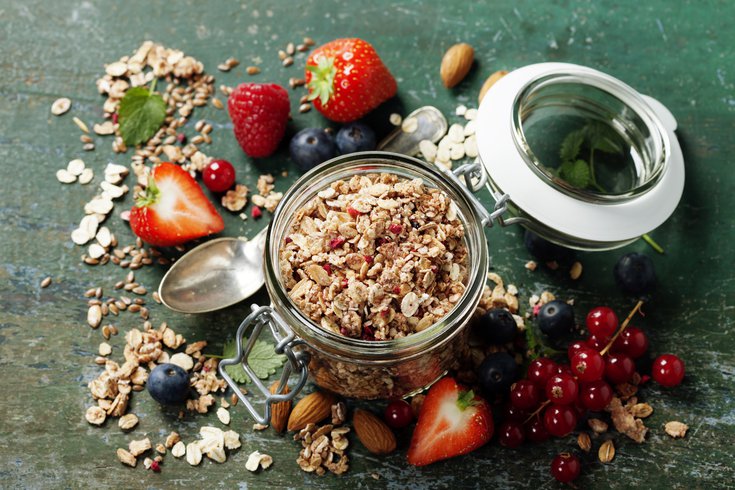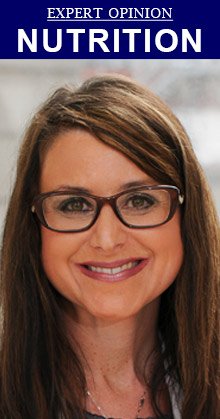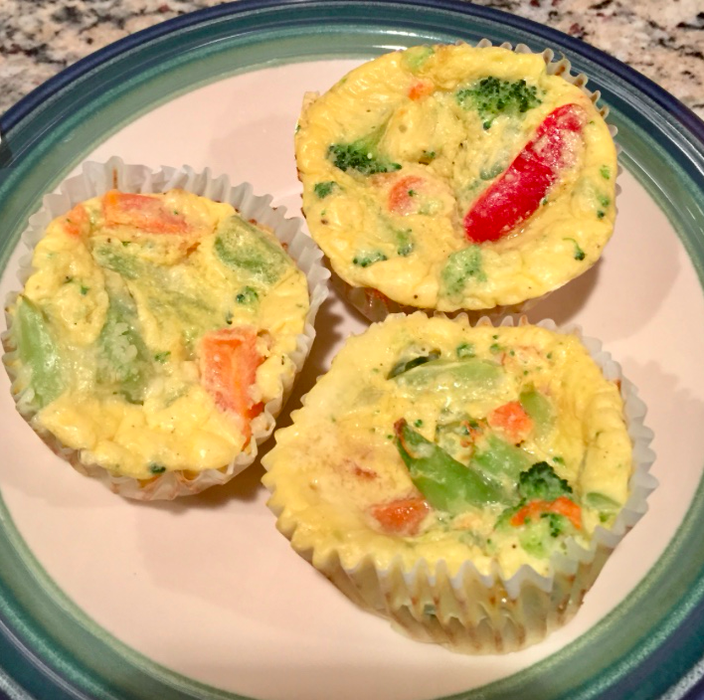
May 08, 2020
 Source/Image licensed from Ingram Image
Source/Image licensed from Ingram Image
A gluten-free diet isn't always a healthy choice and should be prescribed by a physician or dietitian. People may not get enough vitamins, fiber and minerals if they primarily eat processed gluten-free foods.
When it comes to what we eat, social media has thousands of posts that want to steer your judgement. One positive diet post, in a nanosecond, can convince someone to cut out gluten or dairy or meat or even an entire food group. Is the advice on your smartphone valid? Just because it's a smartphone doesn't mean it has all the answers!
As a registered dietitian nutritionist, I’ve heard diet myth after diet myth from my patients, often from articles or posts they find online. I appreciate that they bring this information to me because I’m able to separate fact from fiction for them. My best recommendation is that you do the same. An RDN can be your personal link for accurate, up-to-date, evidence-based nutritional information.
Here are four common myths that my patients bring to me:
Myth: A gluten-free diet will help with weight loss and increased energy.
Fact: A gluten-free diet is not always a healthier alternative, nor a weight loss diet. It really should only be prescribed by your physician (typically a gastroenterologist) or dietitian if you have celiac disease or non-celiac gluten sensitivity. Gluten is a protein found in wheat, barley and rye grains. If you only eat the processed gluten-free foods, like gluten-free cakes and cookies, you may not get your recommended vitamins, fiber and minerals.
The Journal of Human Nutrition and Dietetics, published a study comparing the nutrition labels of more than 1,700 products. The researchers found that gluten-free foods had more fat, saturated fat, salt and sugar than traditional foods. If you choose to follow a gluten-free diet, make sure to include naturally gluten-free and healthy options, like quinoa, buckwheat, oats, sweet potatoes, beans, nuts, fresh fruits and vegetables. And before you decide to cut out a whole food group, always talk with your health care professional first.
Myth: Carbs cause you to gain weight and make you fat.
Fact: Low-carbohydrate diets are popular for weight loss. Carbohydrates alone do not cause weight gain, but certain types of carbs may. Refined "white" carbs and processed foods, like cookies, cakes and potato chips may contribute to weight gain. Sadly, carbohydrates, like fruit and whole grains, are now being touted as forbidden foods on social media. Carbohydrates are the body's primary source of fuel. Eating a balanced diet higher in complex carbs including whole-grain bread and oatmeal are rich in fiber and B-vitamins.
Emily Rubin, R.D.
According to a study on weight loss and diet composition, when calories are controlled, there's no weight loss benefit from eating a low-carb diet over a high-carb diet. The low carb diets do lead to rapid, short-term weight loss but the research suggests that most people following a low-carb diet, gain the weight back over time due to poor adherence. The perfect weight loss diet is the one that fits into your lifestyle and one that you can stick to in the long term. Any diet or eating program that eliminates an entire food group is a red flag that you are missing out on vital nutrients.
Myth: Fasting and detox diets are essential to cleanse the body.
Fact: Fasting and detox diets do not meet their claims – in fact, they can be dangerous. Fasting to “cleanse,” in which you don't eat for a certain number of days, can cause dehydration, dizziness and fatigue. Detox products contain herbs and other ingredients that are not regulated by the U.S. Food and Drug Administration for safety or effectiveness. Therefore, you have no idea whether the listed ingredients are actually in the products.
Our liver, kidneys and gastrointestinal tract cleanse our bodies every day. If you're looking to really detox your body, focus on eating more high fiber whole foods like, fruits, vegetables, whole grains, drinking water and removing highly processed foods from your diet.
Myth: Eggs are unhealthy and will raise my cholesterol.
Fact: This answer is tricky. Let’s first discuss the breakdown of an egg. An egg white contains the protein. Egg yolk contains nutrients, vitamins, minerals and yes, cholesterol. The few studies that found a link between eating eggs and heart disease are limited and inclusive.
The cholesterol in eggs doesn’t always raise cholesterol levels in the same way as other cholesterol-containing foods that you probably eat with your eggs. It is the trans-fat and saturated fats found in butter, cheese, bacon, sausage, muffins, donuts, etc., that may raise your blood cholesterol much more than the cholesterol in your egg. Most healthy people can eat five eggs a week without increasing their risk of heart disease.
The American College of Cardiology and the 2015–2020 Dietary Guidelines for Americans have no longer set a target for dietary cholesterol. If you enjoy eggs but are still really concerned with the cholesterol, use egg whites or – better yet – mix egg whites with a whole egg for extra protein.
• • •
Veggie frittata cups make a healthy breakfast option.
Servings: 12 frittata cups
• 5 eggs and 6 egg whites
• 1 16 oz. frozen steam-in-the bag mixed veggies
• 1 tsp pepper
• 1 tsp paprika
• 1 tsp onion powder
• 1 tsp garlic powder
1. Preheat oven to 350 degrees.
2. Spray muffin cups or wrappers with cooking spray.
3. Steam veggies in bag as directed on package.
4. In a large bowl, beat the eggs. Add the cooked veggies, pepper and cheese to the beaten eggs.
5. Spoon batter into muffin pan no higher than ¾.
6. Bake 20-25 minutes. Frittatas are done when a toothpick is inserted near the center and comes out clean.
7. Let cool in pan for 7-10 minutes.
8. Any leftover frittatas can be refrigerated up to 5 days and then frozen if not gobbled up immediately.
 ./.
./. Emily Rubin/Jefferson Health
Emily Rubin/Jefferson Health